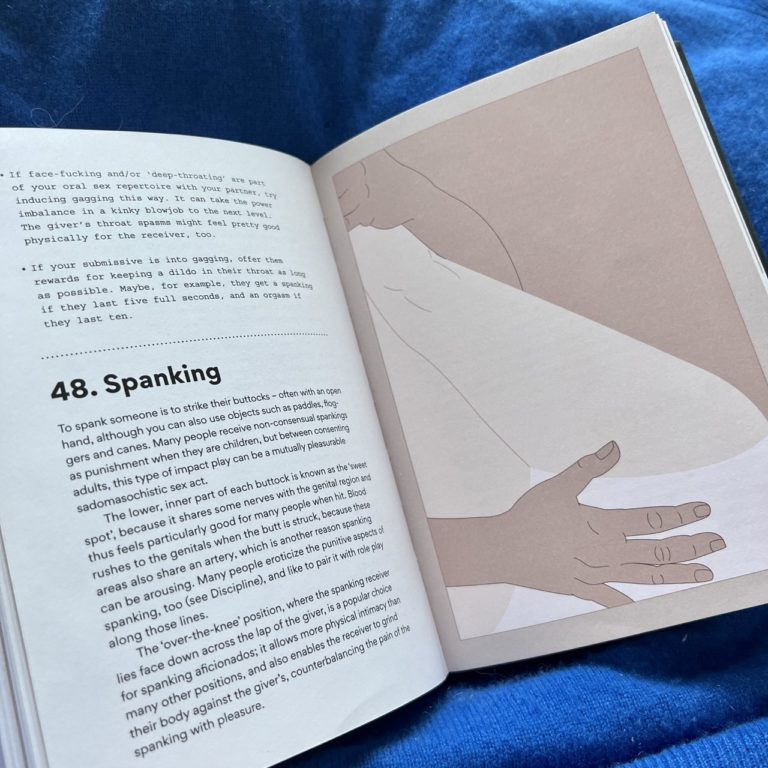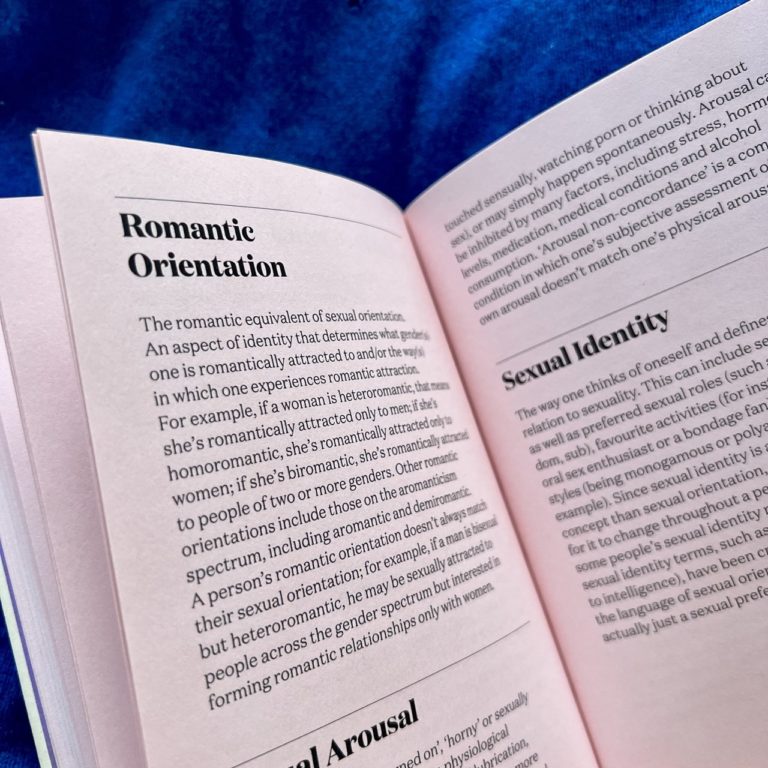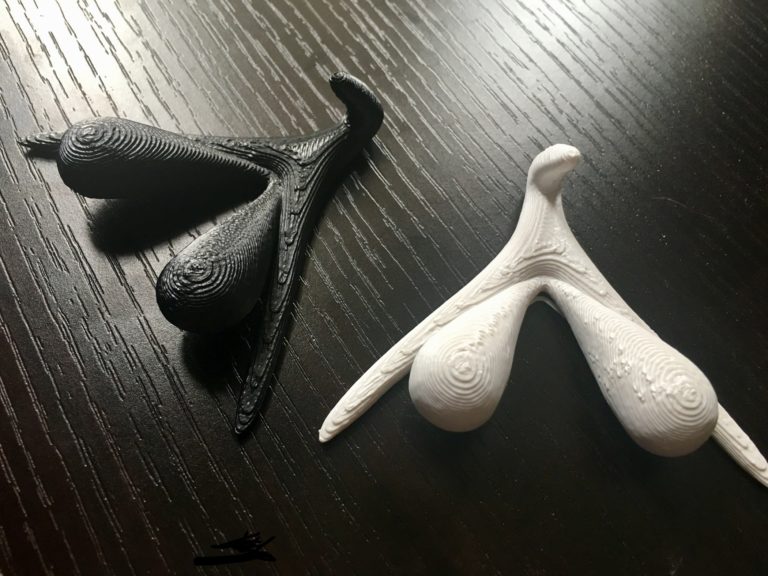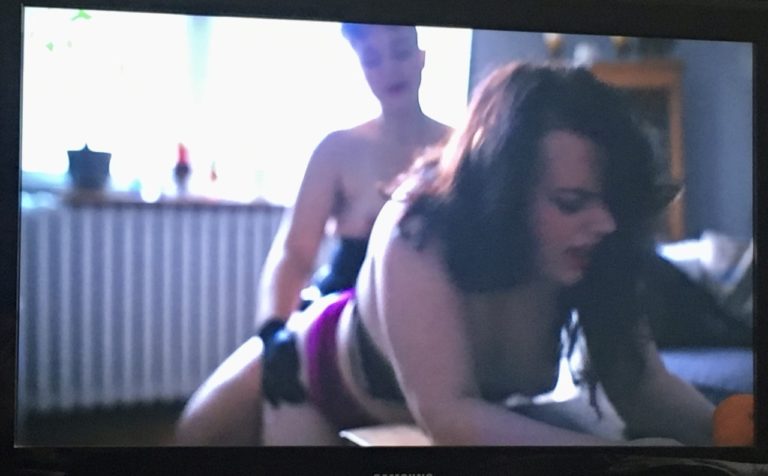
One of the most striking changes in my sexuality as I’ve grown older is how much more demisexual I’ve gotten. I went from being a horny, flirty 23-year-old who could spot my next fuck from across a crowded swimming pool, to being a grizzled, grumpy 30-year-old who needs to have a 3-hour conversation with someone before deciding whether she wants to hold their hand. (That’s a slight exaggeration… maybe…)
I’ve seen the question of demisexuals’ porn consumption come up in a few of the online sex discussion spaces I participate in, and I think it’s an interesting one. If the primary purpose of pornography is to arouse the viewer, and the viewer is someone who is far more aroused by brains than bodies, and far more interested in intimacy than insertions, can porn really do its job? I have a few points I’d like to make in response to this question.
Quick refresher before we hop in: Demisexuality is an identity on the asexuality spectrum. Demisexuals find it difficult or impossible to experience sexual attraction until and unless they’ve developed an emotional connection to, or at least an emotional familiarity with, the subject of that attraction.
Point 1: Sexual attraction and sexual arousal are not the same thing.
Sexual attraction, generally speaking, is the visceral pull you feel toward someone you want to kiss, touch, and/or fuck. It is aimed at particular people; if someone said to me, “Do you feel like having sex right now?” my answer would be rather different than if someone said to me, “Do you feel like having sex with James Dean circa 1955 right now?” (My answers at the moment, respectively, are “Ehh, not really, ask me again after I’ve had my coffee” and “OMG, yes, give me 10 minutes to throw on some red lipstick for him to mess up.”)
Sexual arousal, on the other hand, is the physical (and, arguably, also mental) state of being horny. It can involve noticeable changes in your physiology, like engorged genital tissue and a quickening heartbeat, as well as more psychological effects, like the pressing desire to be imminently touched by yourself and/or by someone else.
These two things are different. Certainly one can facilitate the other – and for many demisexuals, sexual attraction precedes sexual arousal and is itself preceded by emotional attraction – but fundamentally, they are separate, and don’t always occur at the same time, in the same situations.
Without trying to speak for other demisexuals on this matter, I’ll say that I can become sexually aroused by porn without feeling sexually attracted to the people in it. It certainly helps if I’m attracted to the people in it (more on that below), but just witnessing certain sexual acts can rev me up, especially if they’re acts I’m already intimately familiar with and/or acts I already fetishize to some extent. And so, yes, I can jerk off to porn, and often find that it adds measurably to my arousal and pleasure, just as it does for many allosexual people (i.e. people who are not on the asexual spectrum).
Point 2: Porn can become familiar.
In an age of OnlyFans feeds and live sex cams, it’s easier than ever to follow the careers of porn performers you enjoy. Whether you become a fan of theirs because you think they’re cute, because they remind you of someone you used to date, or because your favorite sex acts and kinks are fairly aligned with theirs (or all three!), you can definitely develop an “emotional connection” – albeit a one-sided, parasocial one – to certain performers over time.
This noticeably increases my enjoyment of porn, as a demisexual person. Of the porn performers whose work I follow closely, what they all have in common is that there’s a lot of personality infused into their work, so that I get a sense of who they are (or at least, who their porn persona is) on a deeper level than I would if I’d just watched them get fucked once. This creates a sense of heightened connection and therefore generates heightened sexual attraction on my end.
I’ve noticed that this effect can also occur even if I’ve just seen a particular porn clip several times. It’s like the raunchier version of how I feel more attracted to Jennifer Beals every time I re-watch one of her sex scenes from The L Word…
If you’re not sure where to even find porn performers you might develop a fondness for, I’d suggest scrolling through clip sites like ManyVids, or flipping through the pages of free adult webcams listings, and clicking on anyone whose aesthetic or vibe provokes a positive response in you. Follow that little glimmer of potential attraction and see where it leads you.
Point 3: You can make porn that’s familiar.
Now, granted, not everyone wants to set up a camera to film themselves while fucking. You may have concerns about this related to cybersecurity, future employment, etc. and that’s fine.
But if you are willing to make your own porn, I think this can be one of the best solutions for demisexuals who want wank fodder but don’t connect with much/any of the porn they see online. After all, what could be more demisexual than jerking off to the sight of a person you know IRL and already have a deep connection with?
I’ve made amateur porn with a few partners over the years, and it’s always served me well when incorporated into my spank bank. It reminds me of hot sex I’ve had, because it depicts… hot sex I’ve actually had! And it’s therefore a lot easier for me to get turned on by it and get off to it.
Fellow demisexuals, what’s your experience with porn? Does it turn you on? Bore you? Or does it depend?
This post contains sponsored links. As always, all writing and opinions are my own.
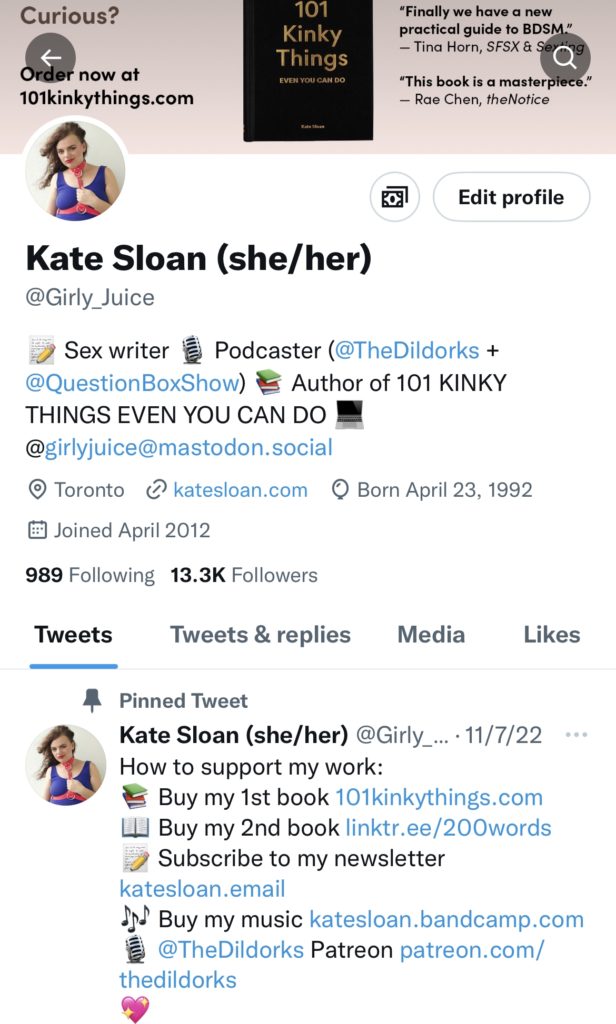 I’ve been very depressed this last week, and I’d be lying if I said it had nothing to do with the imminent demise of Twitter as we knew it. There are other factors, of course, but Twitter is a big one.
I’ve been very depressed this last week, and I’d be lying if I said it had nothing to do with the imminent demise of Twitter as we knew it. There are other factors, of course, but Twitter is a big one.
